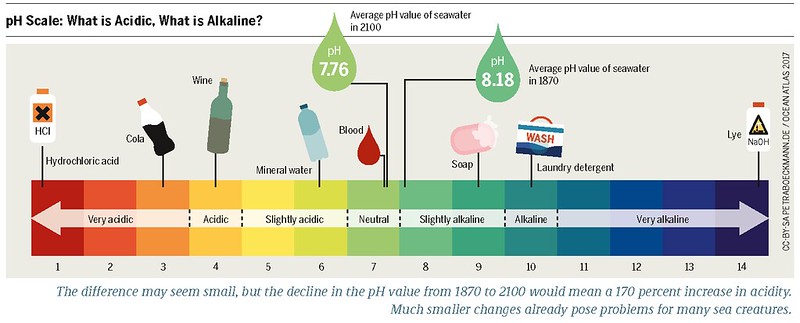The pH value of water is 7, which is neutral, while the pH value of milk can vary slightly depending on the type of milk and its processing, but it is generally around 6.5-6.7, which is slightly acidic. Milk is an acid-forming food, and its pH level is below neutral at about 6.7 to 6.9. On the other hand, most fruits and vegetables are alkaline-forming, while most grains and dairy products like butter, hard cheeses, cottage cheese, and ice cream are acid-forming.
Understanding the pH of Milk
Milk is a complex liquid that contains a variety of nutrients, including proteins, fats, carbohydrates, and minerals. The pH of milk is influenced by several factors, including the cow’s diet, the milking and processing procedures, and the presence of contaminants or bacteria.
Factors Affecting the pH of Milk
-
Cow’s Diet: The cow’s diet can have a significant impact on the pH of the milk. Cows that consume a diet high in grains or other acid-forming foods may produce milk with a lower pH, while cows that consume a diet rich in forage and other alkaline-forming foods may produce milk with a higher pH.
-
Milking and Processing Procedures: The way milk is handled during the milking and processing procedures can also affect its pH. For example, if the milk is exposed to air or other contaminants, it may become more acidic over time.
-
Contaminants and Bacteria: Contaminants and bacteria can also affect the pH of milk. For example, the presence of lactic acid-producing bacteria can cause the milk to become more acidic as they ferment the lactose in the milk.
Optimal pH Range for Milk
The optimal pH range for milk is generally considered to be between 6.5 and 6.7. This range is important for maintaining the stability and quality of the milk, as well as ensuring that it is safe for consumption.
Understanding the pH of Water
Water is a neutral substance, with a pH of 7. However, the pH of water can be affected by various factors, including contaminants and chemicals.
Factors Affecting the pH of Water
-
Pollutants: Pollutants such as industrial waste, agricultural runoff, and atmospheric gases can affect the pH of water, making it more acidic or alkaline.
-
Minerals: The presence of minerals in water, such as calcium, magnesium, and iron, can also affect its pH.
-
Atmospheric Gases: Gases such as carbon dioxide and sulfur dioxide can dissolve in water, making it more acidic.
Optimal pH Range for Water
The optimal pH range for drinking water is generally considered to be between 6.5 and 8.5. This range ensures that the water is free from harmful contaminants and is safe for human consumption.
Balancing the pH of Milk and Water
To maintain a healthy pH balance, it is important to consume a balanced diet that includes a variety of alkaline-forming and acid-forming foods. Additionally, it is important to ensure that the water you consume is within the optimal pH range.
Balancing the pH of Milk
To balance the pH of milk, it is recommended to consume a balanced diet that includes more alkaline-forming foods, such as fruits and vegetables. Additionally, raw milk may be alkaline-forming in the body, but it may not be safe to drink untreated milk.
Balancing the pH of Water
To balance the pH of water, it is recommended to consume water with a pH value between 6-8.5, as this range is considered optimal for human consumption and ensures that the water is free from harmful contaminants.
Conclusion
The pH of milk and water can have significant impacts on the body and overall health. By understanding the pH values of these substances and taking steps to balance them through diet and consumption habits, individuals can maintain a healthy pH balance in their bodies and avoid potential health risks associated with excessively acidic or alkaline substances.
References:
– Quora – What is the pH value of drinking milk and water?
– Healthline – pH of Milk and Plant-Based Alternatives: Effects on the Body
– FreedrinkingWater.com – Water Education: pH of Water

